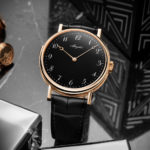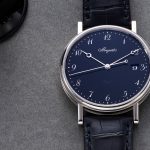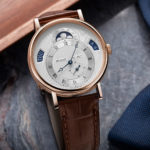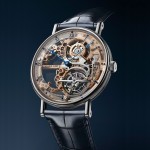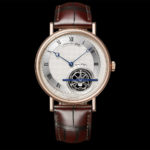Up Close: Breguet Classique 7637 Répétition Minutes
Elegant, traditional, finely finished, and big.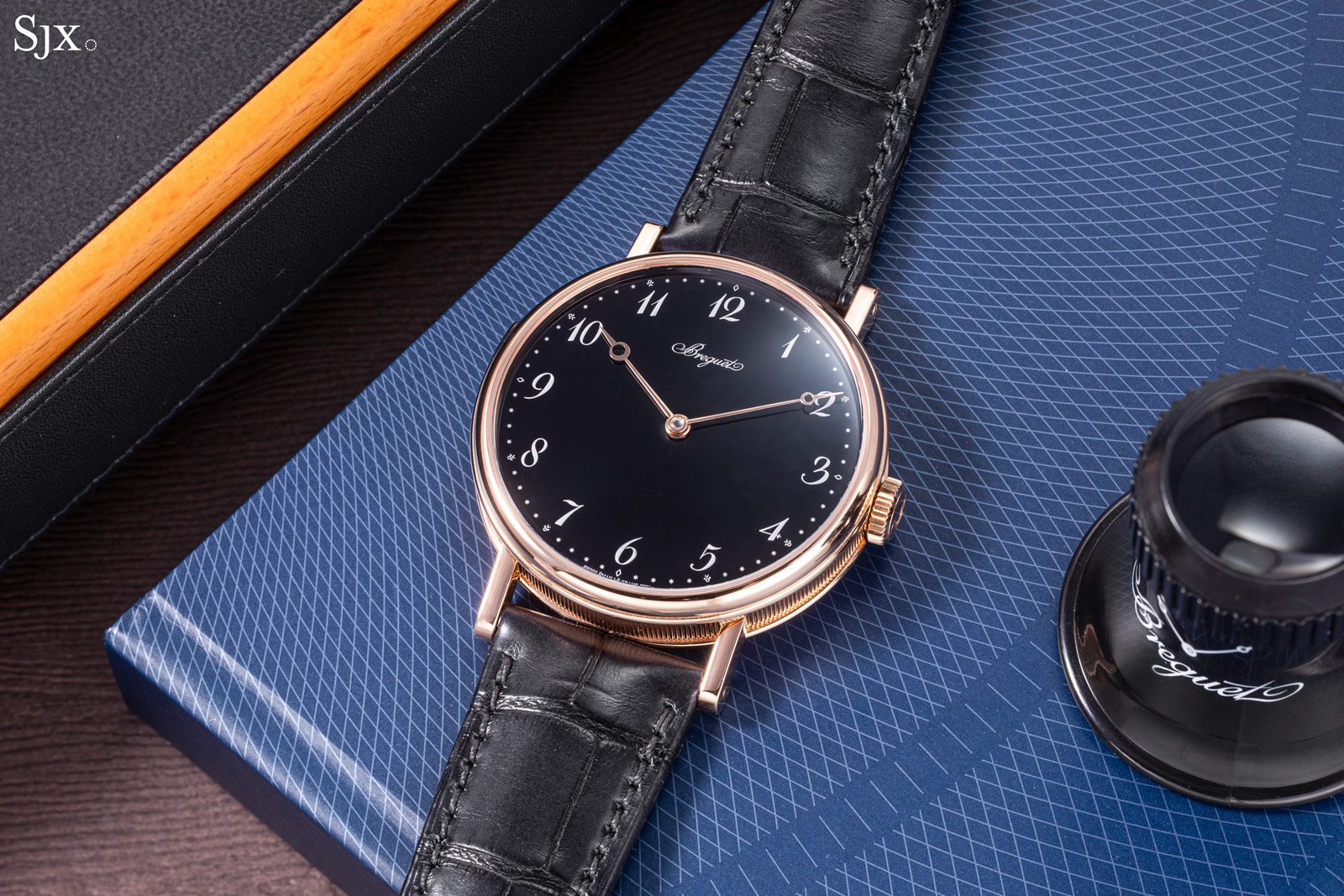
Breguet recently unveiled the latest generation of its minute repeater wristwatch, which embodies minimalist classicism. The Classique 7637 Répétition Minutes has a fired enamel dial in glossy black with just two pomme hands and Breguet-style numerals in silver-powder print – and a case that is a surprisingly large 42 mm.
Inside is the cal. 567.2, a variant of the calibre that has equipped Breguet repeating wristwatches since the 1990s. But while today’s cal. 567.2 still has the familiar layout of a traditional striking movement, it incorporates a series of upgrades that give the 7637 particularly impressive acoustic qualities.
Initial thoughts
The 7637 in its latest guise is a beautiful, elegant watch in the traditional Breguet style. Traditionalists might say the black enamel dial is too stark, but the look is still quintessential Breguet in my eyes.
Moreover, this is the best iteration of the model to date. Compared to the earlier open-dial model, the new ref. 7637 is restrained and refined in the manner expected of Breguet.
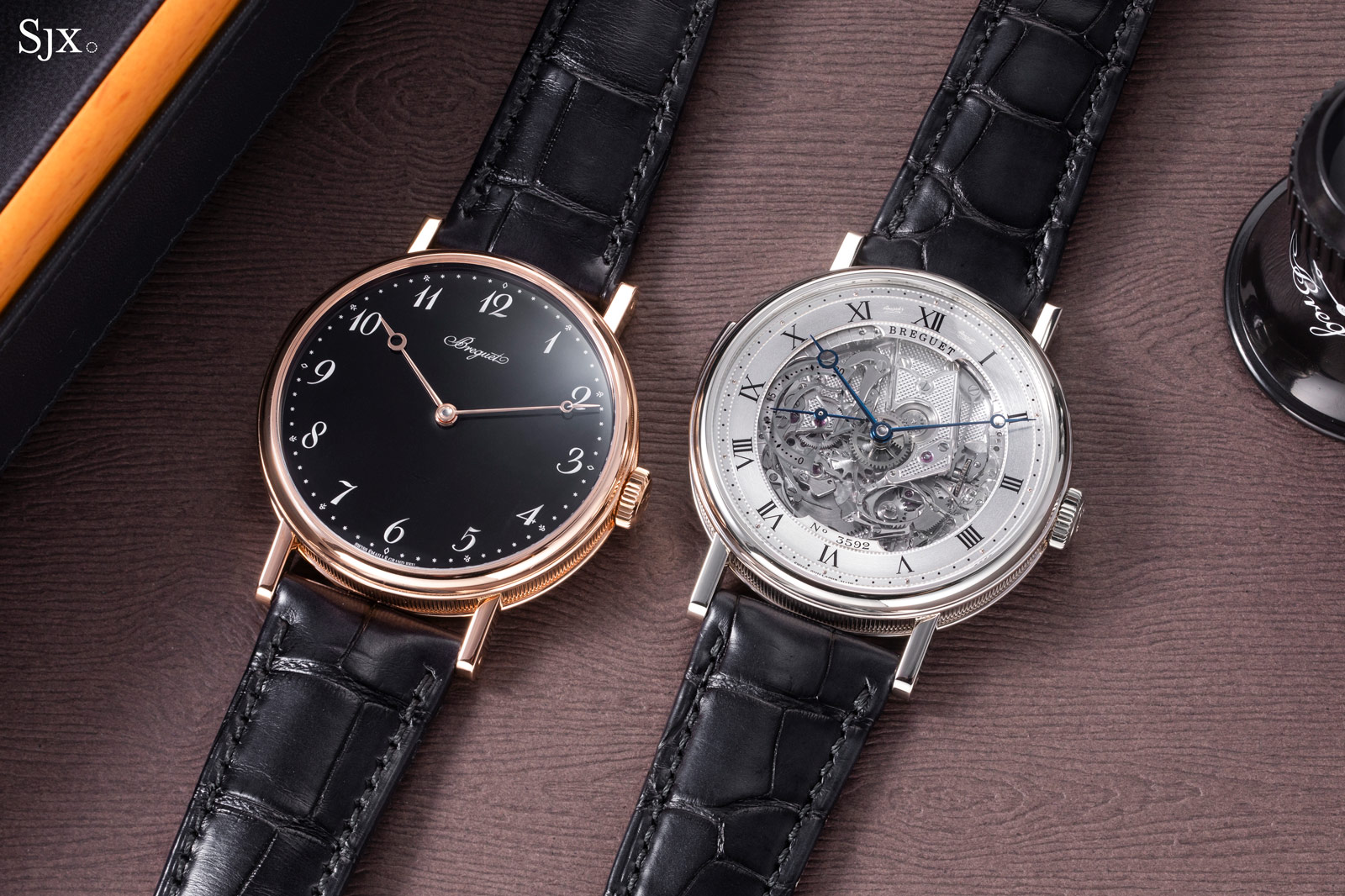
The latest 7637 with an enamel dial (left), and its predecessor that featured an open dial revealing engine-turned movement plates
Even though the 7637 is descended from prior generations of Breguet repeating wristwatches – the movement originates in the 1990s – it sounds substantially better. The volume, clarity, and tonality of its chimes are leagues ahead of its predecessors. This results from upgrades to both the movement as well as case construction (which paradoxically is a drawback, more on that below).
The only acoustic aspect of the movement that can be regarded as a shortcoming is the whirring generated by the governor that regulates the pace of the chimes. Like many old-school repeaters, this has an anchor regulator that has an audible buzz when the repeater is activated. However, the chimes are loud and pleasant enough that the regulator noise is minimal in comparison.
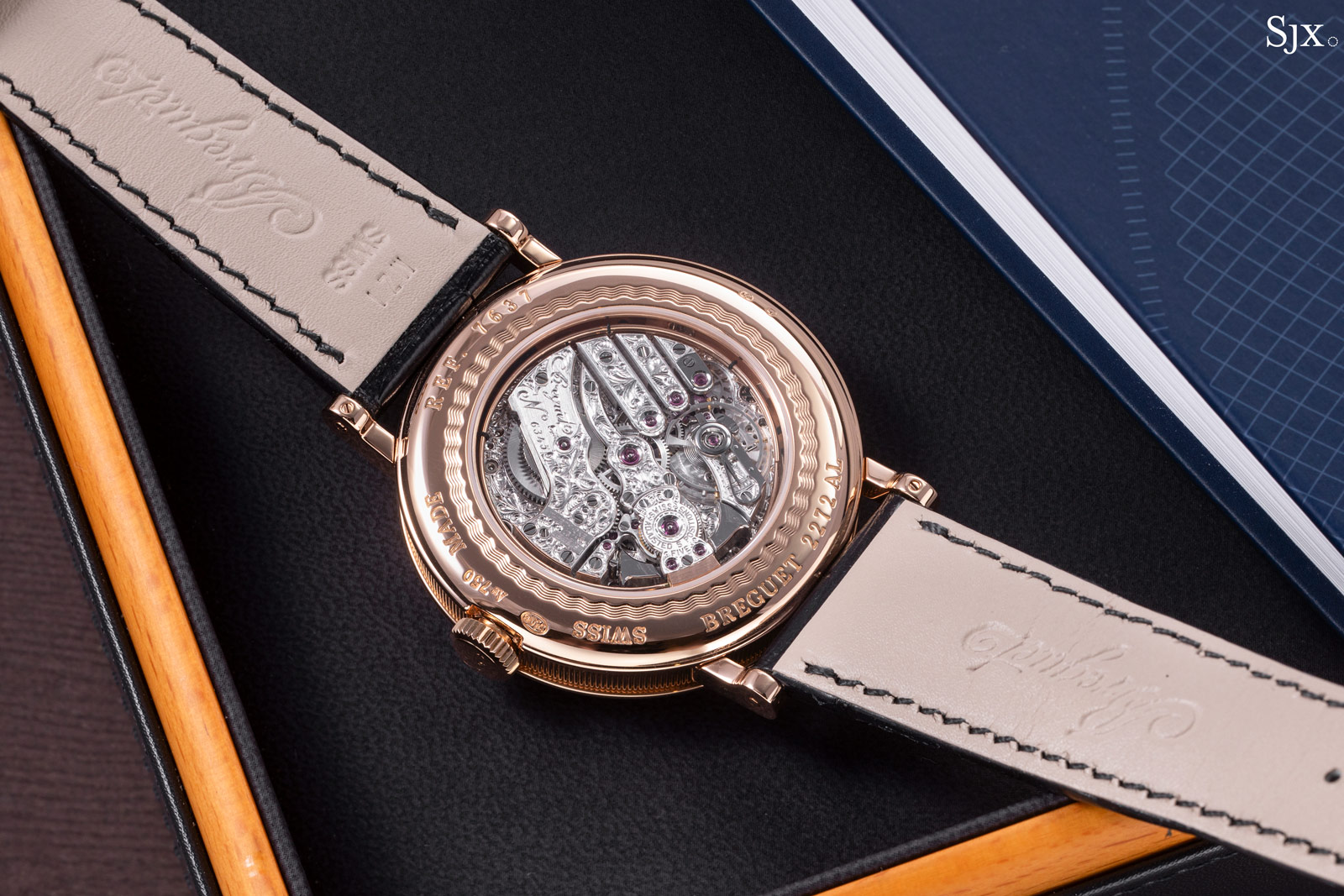
The cal. 567.2
The only drawback of the 7637 is its size. The case measures 42 mm wide. It is a bit over 12 mm high, but feels slim due to case diameter and resulting proportions. Coupled with the long lugs, the case has a large footprint on the wrist. It is too big for an elegant watch; put another way, it would be more elegant if the case were smaller.
Part of the size is functional and attributable to the case construction where the interior of the case is hollowed out in order to maximises the volume and resonance of the chimes. That is acceptable, but doesn’t take away from the size of the watch.
The 7637 costs a little under US$250,000, which in the realm of high-end minute repeating wristwatches is a competitive proposition. Comparable striking watches from brands like Vacheron Constantin and Patek Philippe cost about a quarter more. Granted, the 7637 contains a movement that has more basic origins than the competition, but enough upgrades have been implemented in the cal. 567.2 that it can stand on its own as a contemporary haute horlogerie repeating calibre.
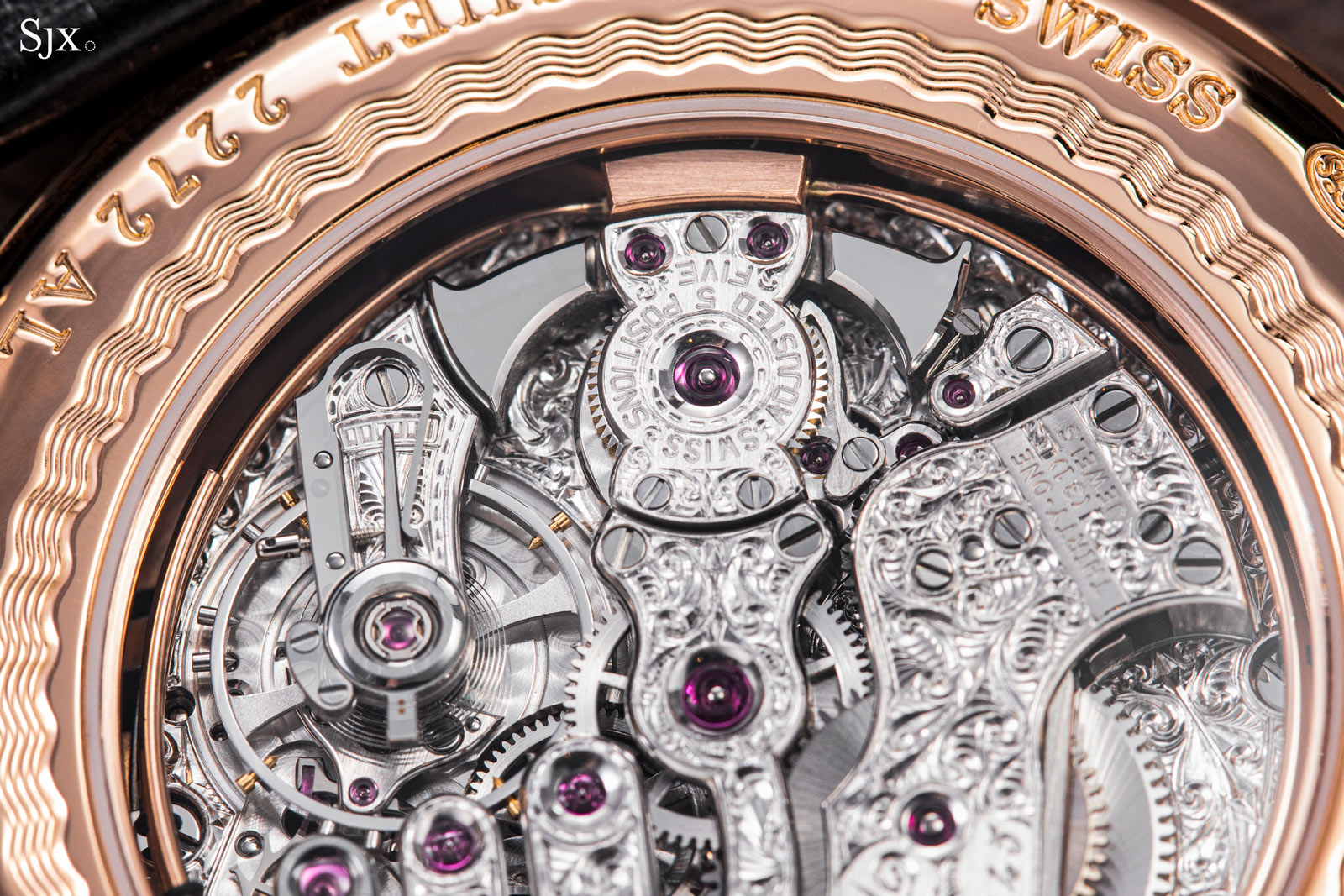
Breguet style
The most recognisable Breguet aesthetic is the guilloche dial, but the fact that the 7637 is instantly recognisable as a Breguet illustrates the brand’s historical importance. Here the Breguet style is expressed with the familiar case featuring a reeded case band and narrow lugs, while the dial is fired enamel with italicised or “Breguet” numerals.
Breguet doesn’t do enamel dials that often, especially compared with guilloche dials, but when it does the results are usually attractive. Another model that resembles the 7637 is the Tourbillon Extra-Plat 5367 with a blue enamel dial. It is equally recognisable as a Breguet creation, though the blue dial gives it a slightly more modern flavour.
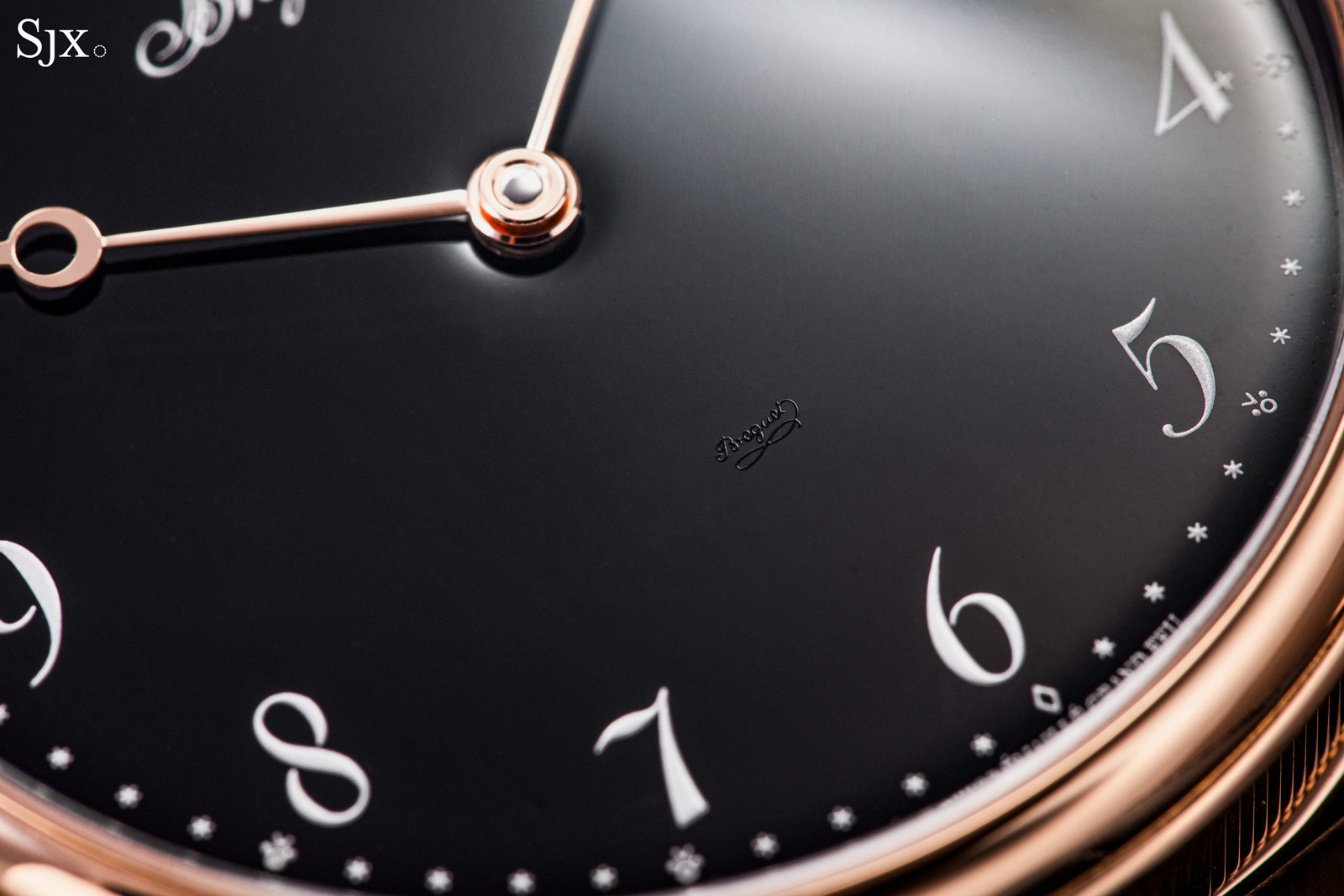
The “secret” signature printed in enamel just above six o’clock
The 7637, on the other hand, has a stark black dial that suits the formality of the Breguet style. At a distance, the dial appears simple, but a closer look reveals a minute track made up of various stars and symbols, a detail inspired by 19th century Breguet pocket watches.
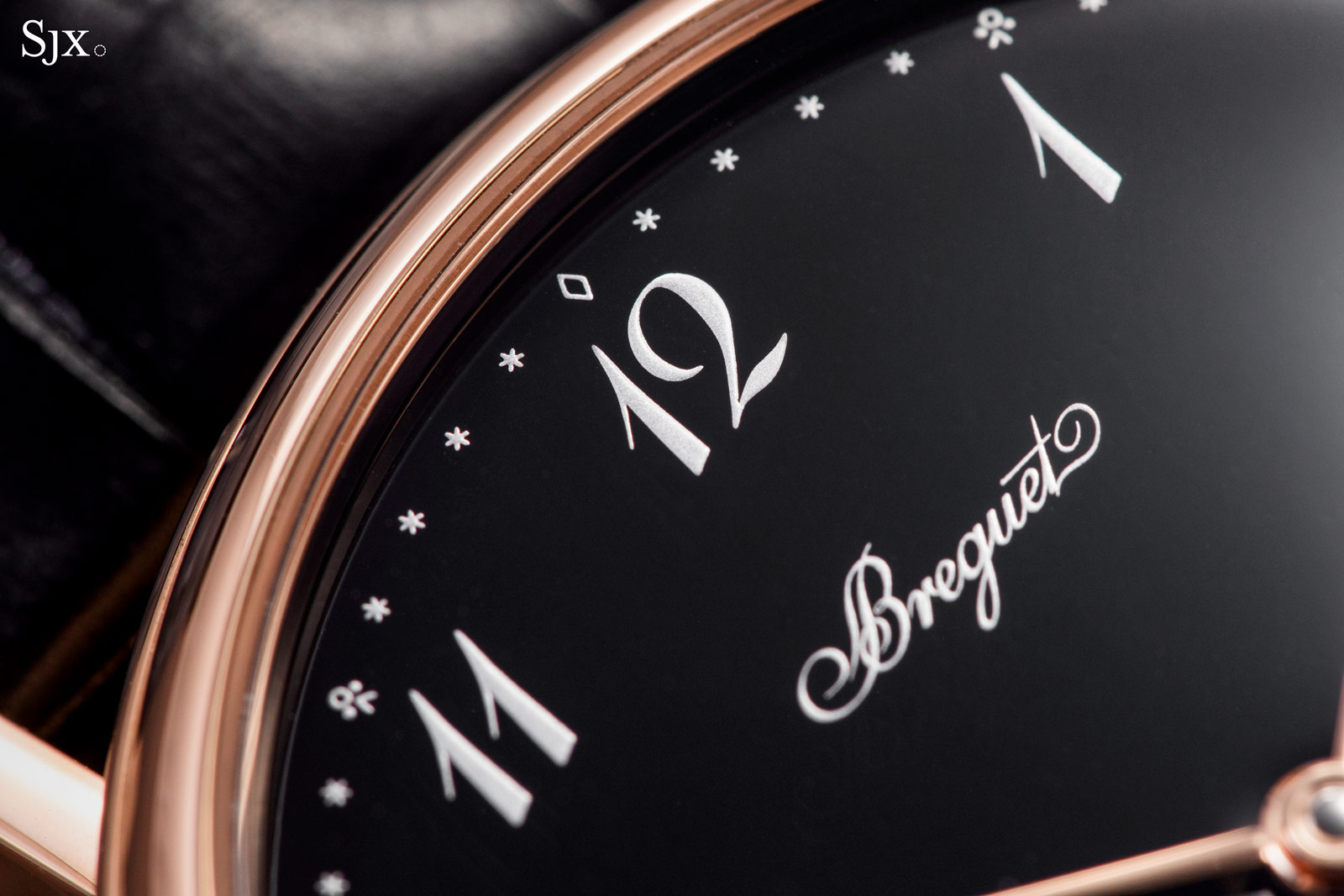
As is typical for Breguet, the enamel dial is of excellent quality. It has a smooth, consistent surface and fine printing. The markings on the dial are printed in silver-powder lacquer, giving them a fine, granular finish.
The Breguet-style hands are solid gold to match the case. Both hands are particularly slender and finely executed; they each have chamfered bosses while the cannon pinion is rounded and polished.
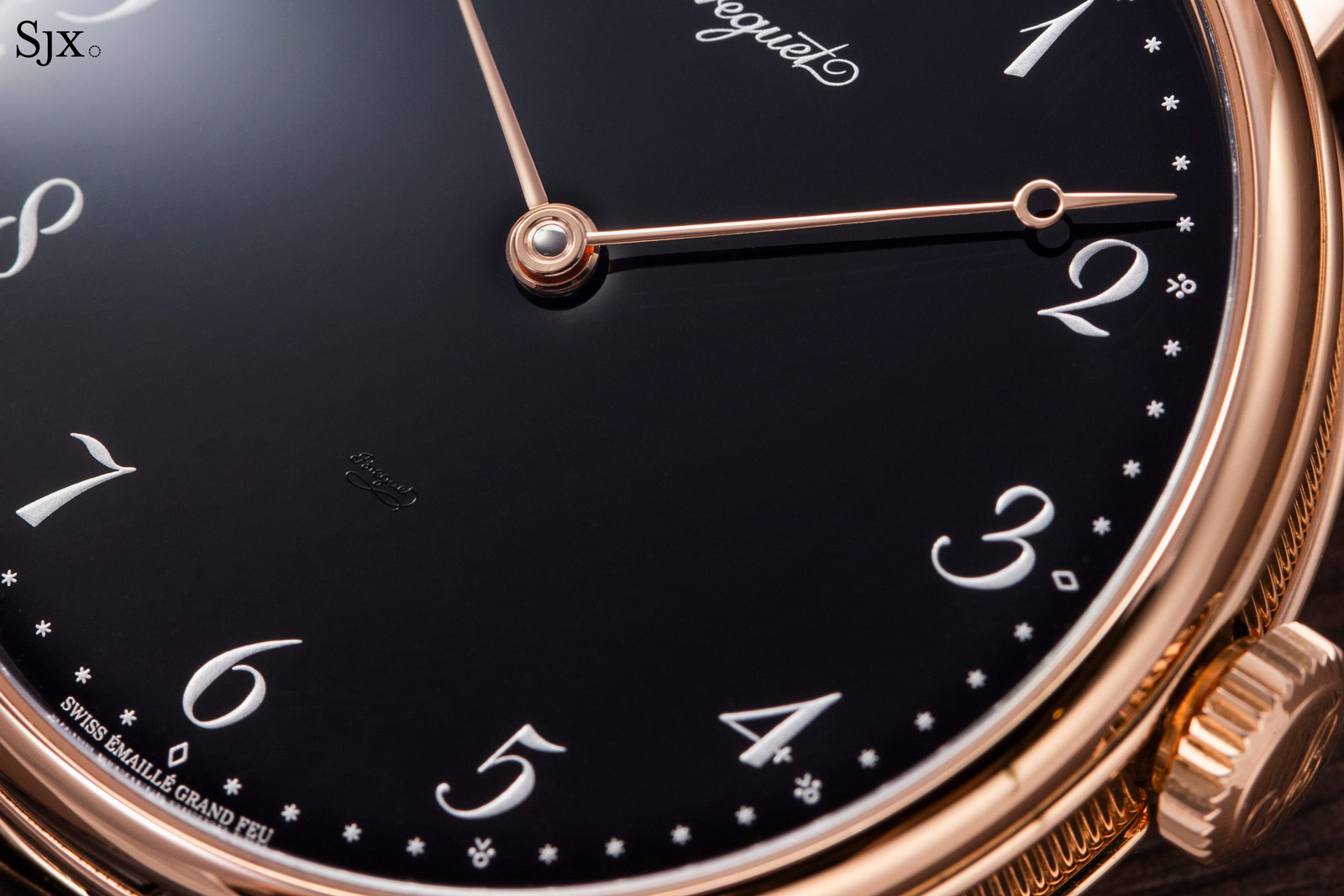
Equally a part of the Breguet style is the case. Here it is classic Breguet with the fluted band, thin bezel, and straight lugs. The proportions of the case are equally classic and arguably perfect. Every element is the right size in relation to the another.
However, the case is too large for an elegant watch. It is 42 mm wide, which ranks it amongst the largest classical minute repeating watches on the market. As noted earlier, this is partly due to the case construction that optimises the sound, but it feels too big on the wrist.
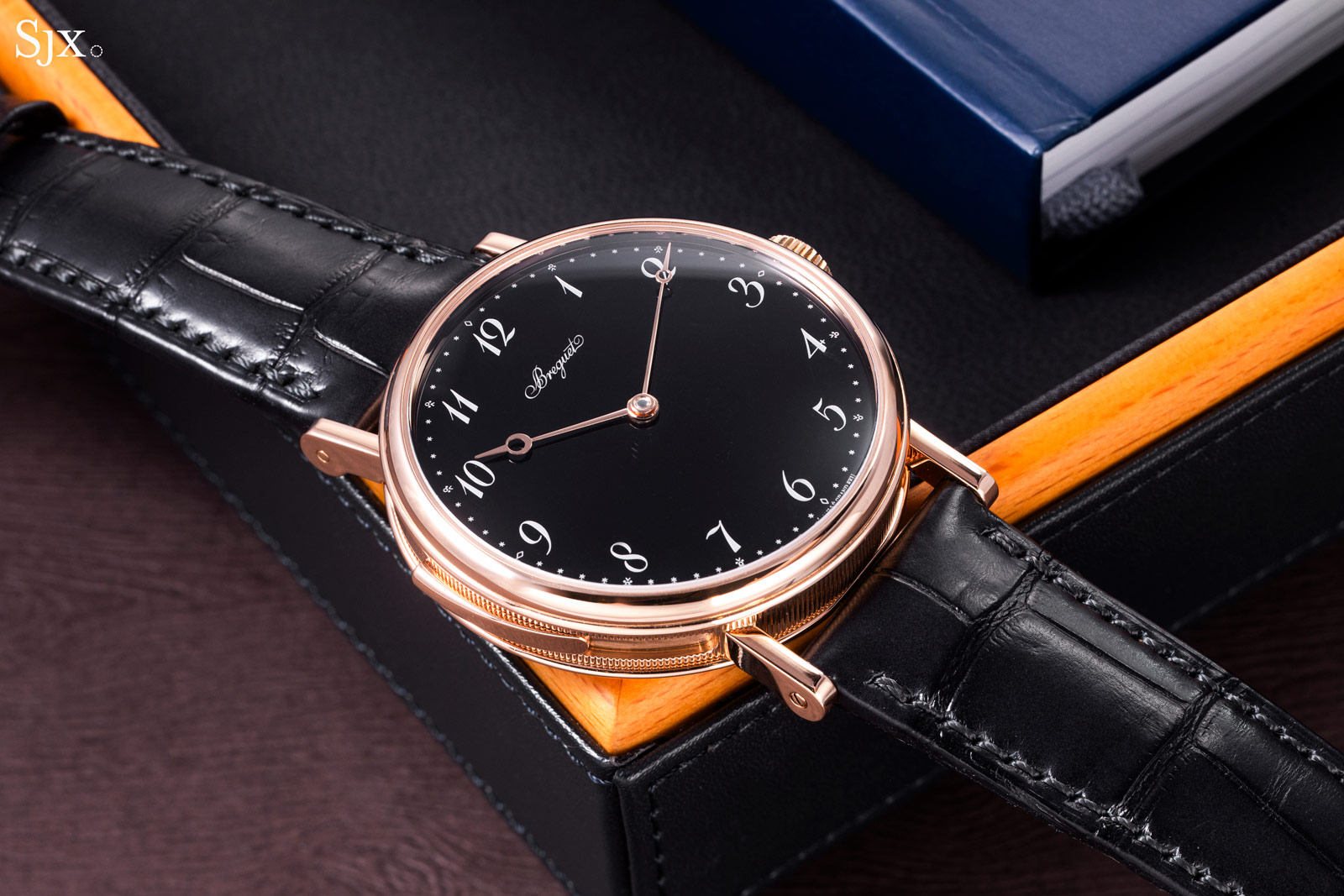
Shrinking the case slightly would change the proportions though, and in the process the design would its proportions. A 40 mm case with the same 12.25 mm thickness would look too thick and resemble a sports chronograph instead.
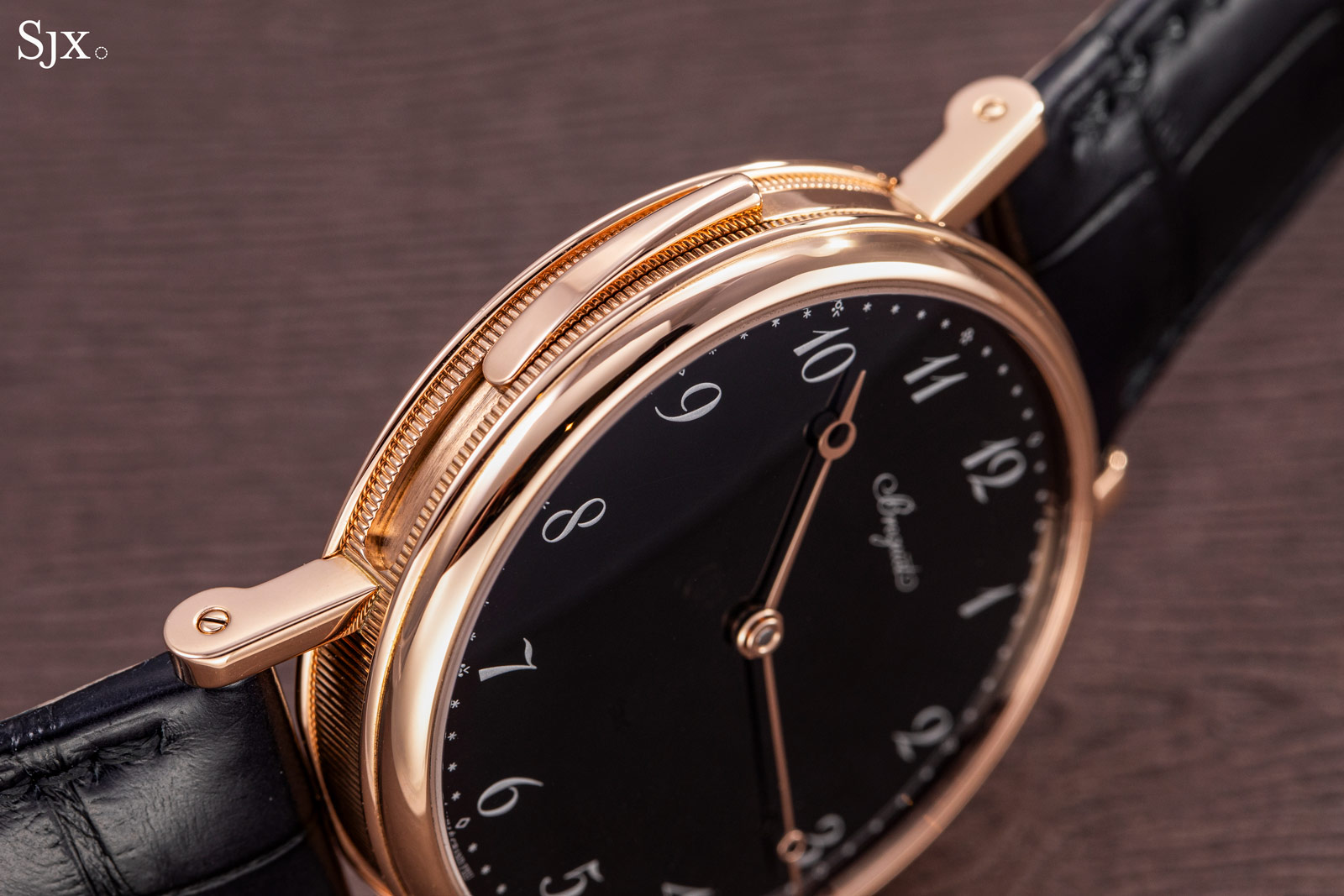
The cal. 567.2
The cal. 567.2 is derived from the Lemania cal. 389/399, which was developed in the 1980s and like many other striking movements of the period, inspired by vintage pocket watch movements. The cal. 567.2 is something of a vintage movement. In fact I would not be surprised if the movement blank dates to the 1990s.
It retains the original layout of the Lemania base, giving it an old-school aesthetic that suits the Breguet house style. This is evident in the finger bridges for the going train and elongated bridge for the strike train.
Its appearance has been made even more elaborate with a floral engraving across all of the bridges that gives the movement a fussy appearance. Although the decoration is excellent (more on that below), I would have preferred a cleaner finish with simple striping and the like.
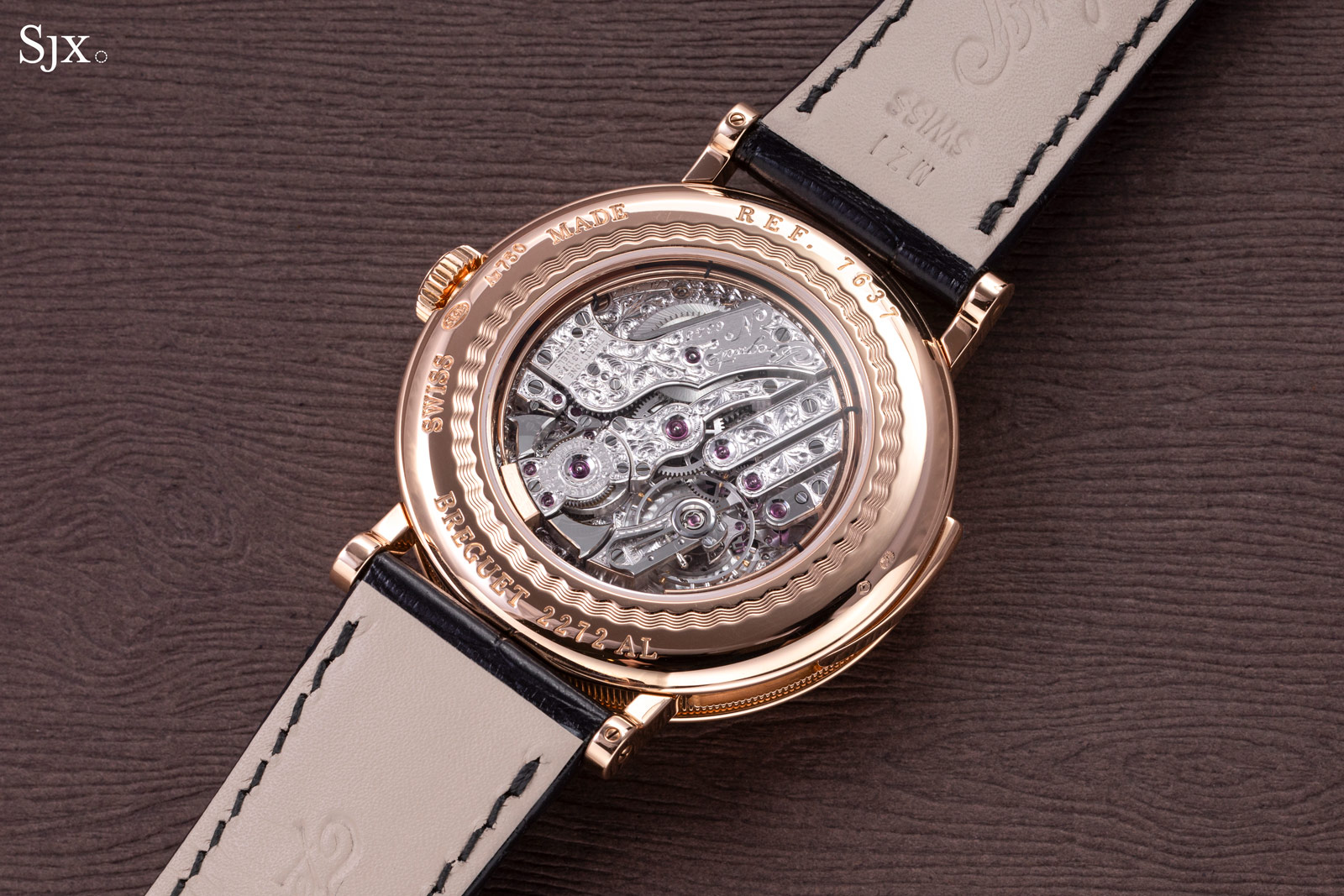
Though the movement appears traditional, it has been upgraded where it matter, namely in the gongs. A conventional repeater has steel gongs secured to the base plate. The cal. 567.2, on the other hand, has gongs of 18k gold that are attached to 18k gold gong holders that are in turn screwed to the inside of the case. In other words, the gongs are physically connected to the case, rather than the movement.
According to Breguet, this patented construction improves the sound of the repeater as the sound waves enjoy better resonance and propagation because the gongs and case are of the same material – they have the same density and molecular structure – and are also physically joined. Another factor that contributes to the improved sound is the case, which has a hollowed out interior and an open-worked movement ring. This maximises the volume of air inside the case for better transmission of sound.
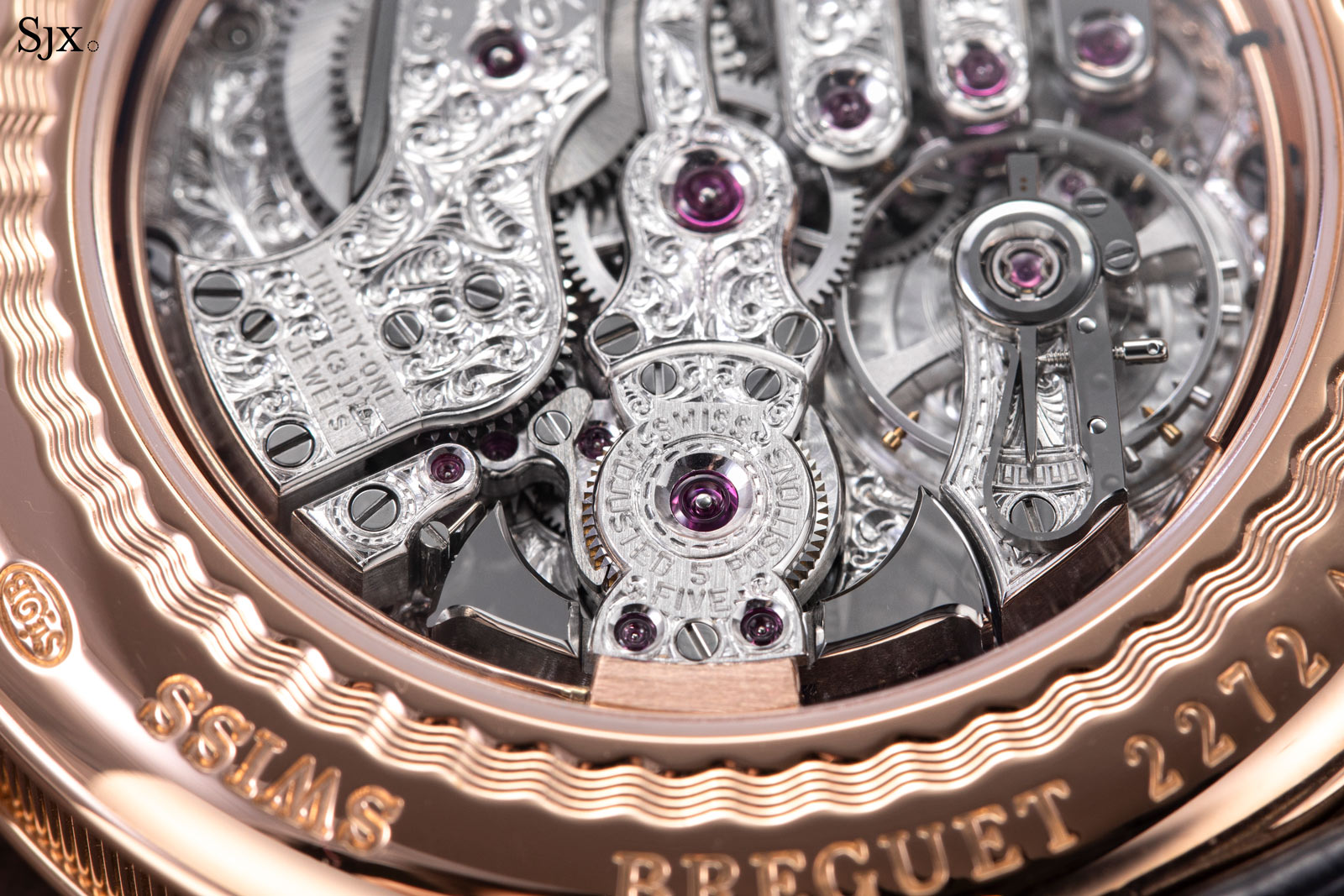
The gold gongs result in substantially better sound, particularly when compared to the 1990s Breguet repeaters with earlier versions of the movement. In fact, the difference is impressive. The only shortcoming in the sound is the buzz of the anchor governor when the repeater is chiming. Because the anchor governor relies on an escape wheel and pallet for regulation, the buzz is inevitable. A newer movement construction, on the other hand, would likely have a “silent” or centrifugal governor that relies on air friction, thus running silently.
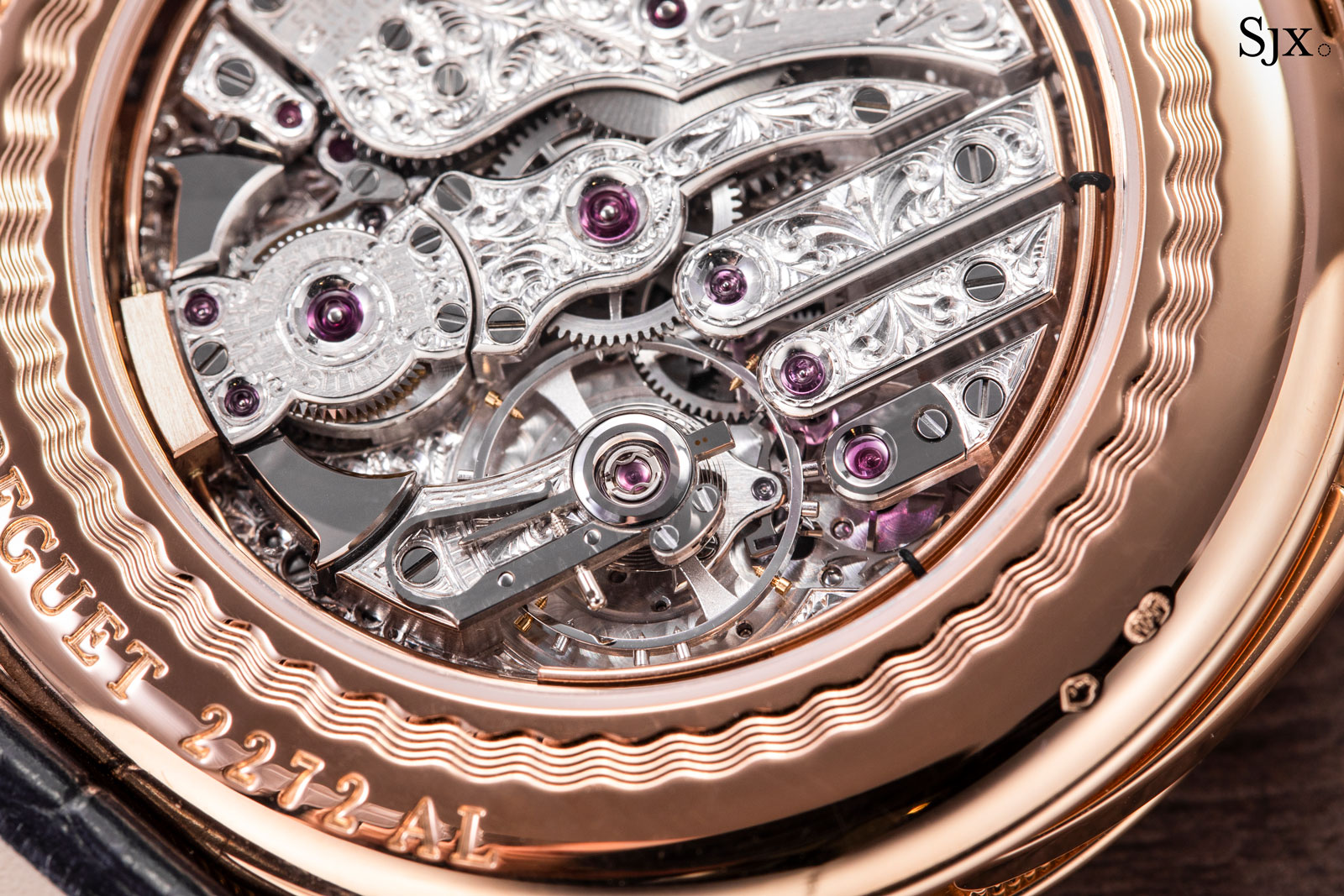
The decoration of the cal. 567.2 is excellent. Besides the floral engraving, the bridges are also decorated with bevelled edges and polished countersinks, while the visible wheels have prominent chamfered spokes and edges.
The criticisms are stylistic rather than substantive. Besides a preference for striping on the bridges, I would have liked more colour. As it is, the movement is too monochromatic. Gold-plated wheels, for instance, would bring a pleasing contrast against the rhodium-plated bridges.
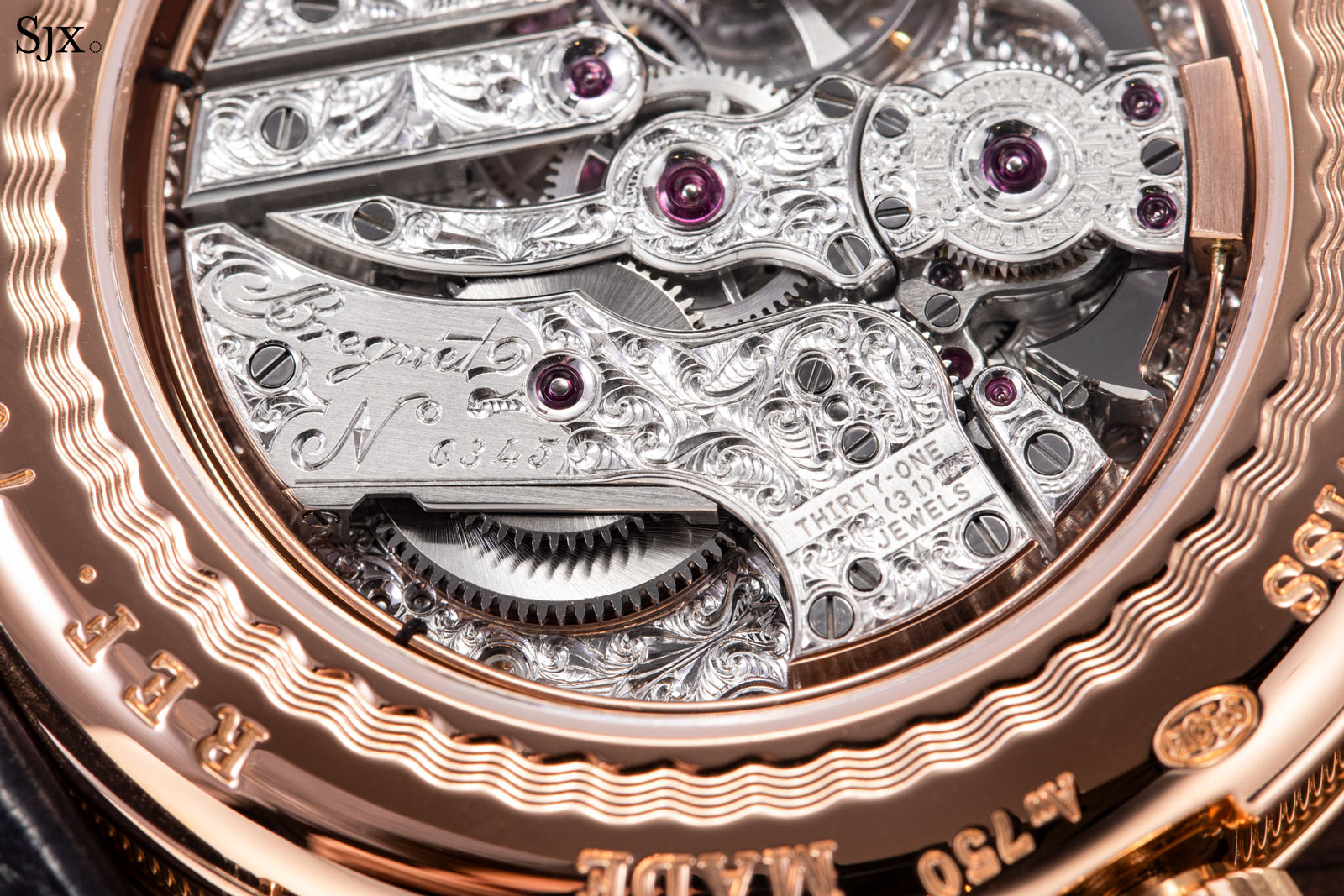
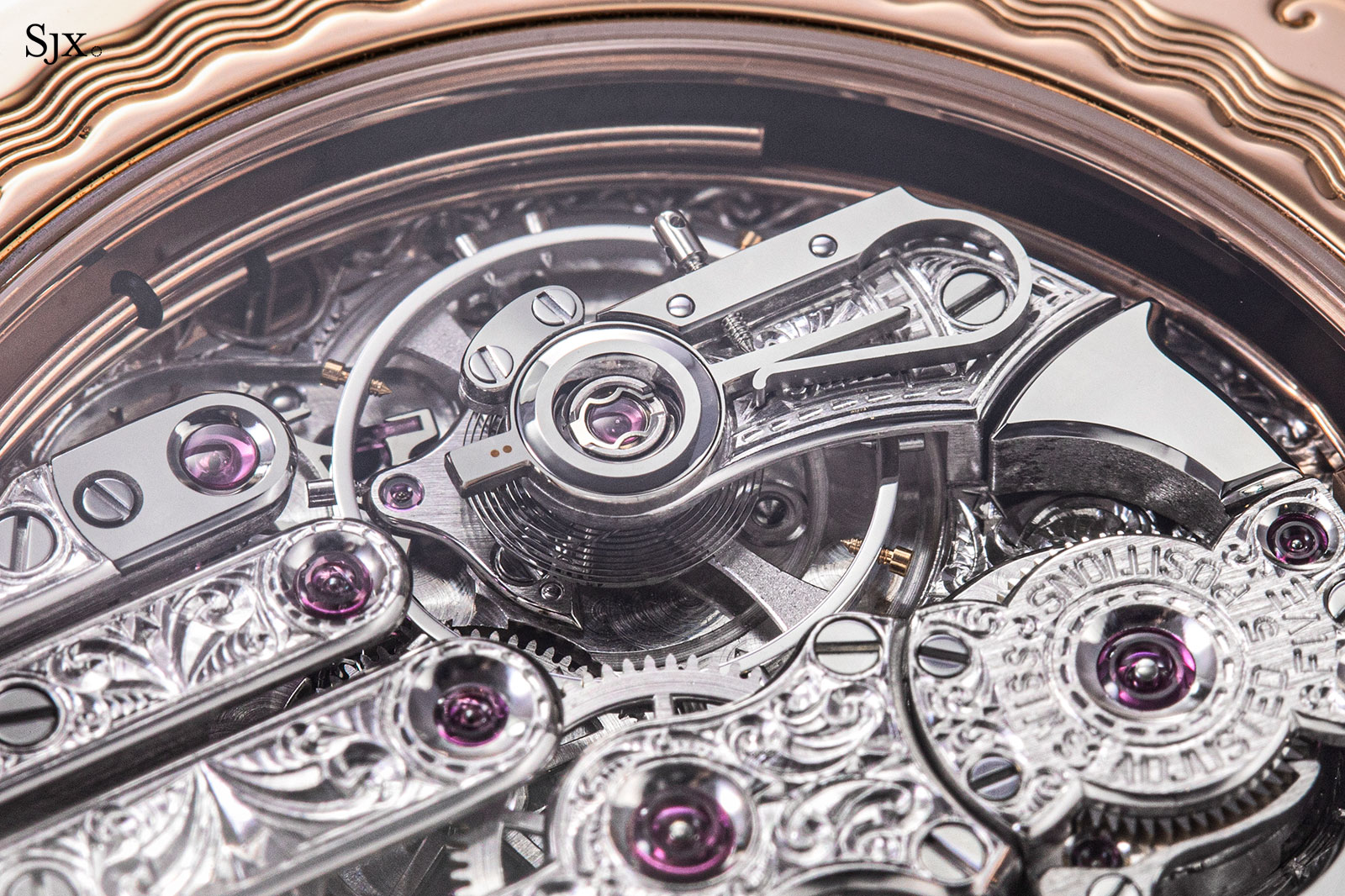
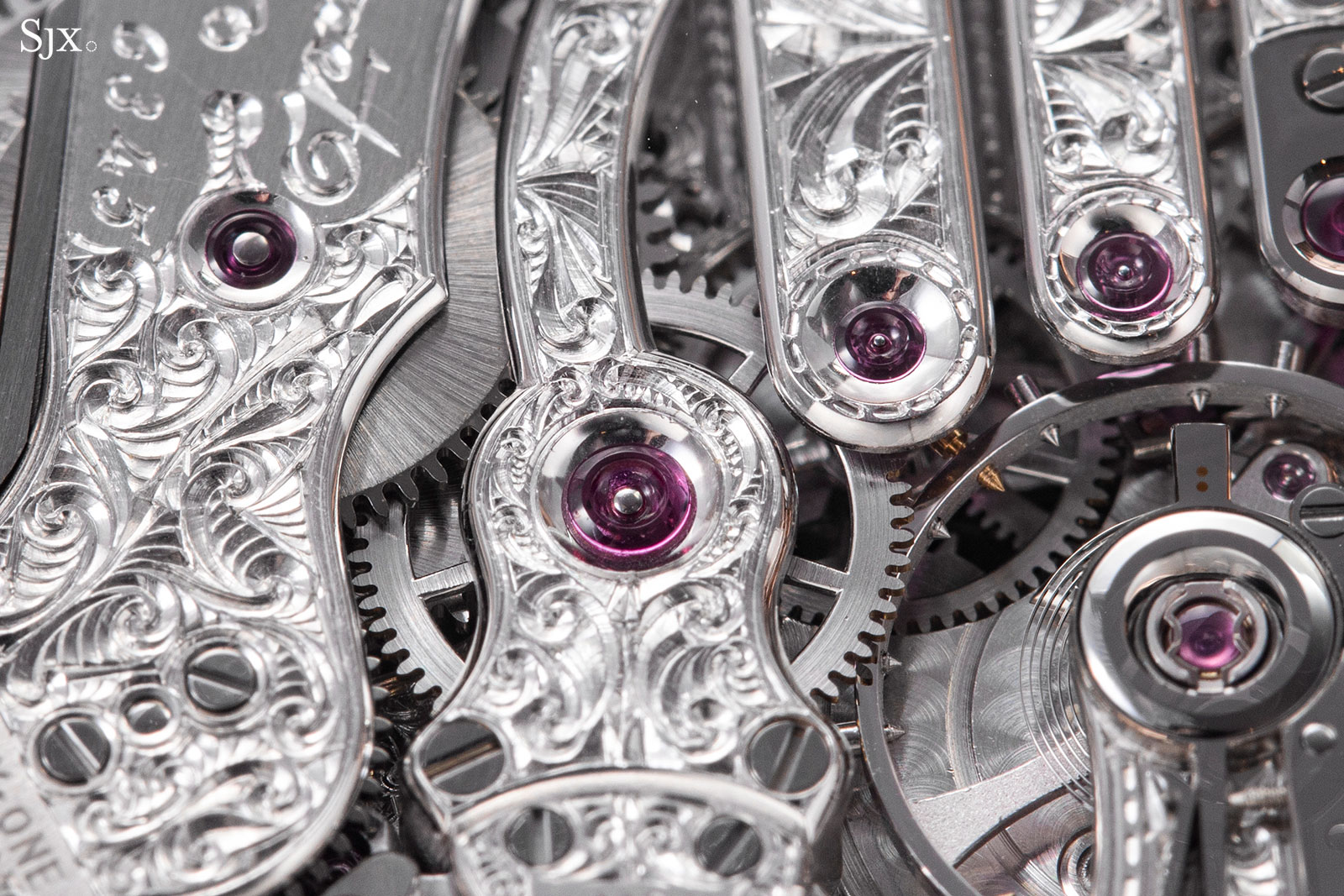
Concluding thoughts
The 7637 exemplifies the Breguet aesthetic, albeit in a larger format than ideal. I would have like the watch to be smaller, but it is a beautiful watch in the best formal, classical style.
The cal. 567.2 is a beautiful calibre with a traditional layout and impressively good sound, though the governor is a detriment. It can’t quite compare with more recently striking calibres simply because it’s over 30 years old, but it performs as well as the competition in terms of the chimes. A newly-developed repeater calibre with a historical style but modern amenities, namely a silent governor, would of course be the ideal. But the historical movement probably plays a part in the relatively competitive pricing of the 7637.
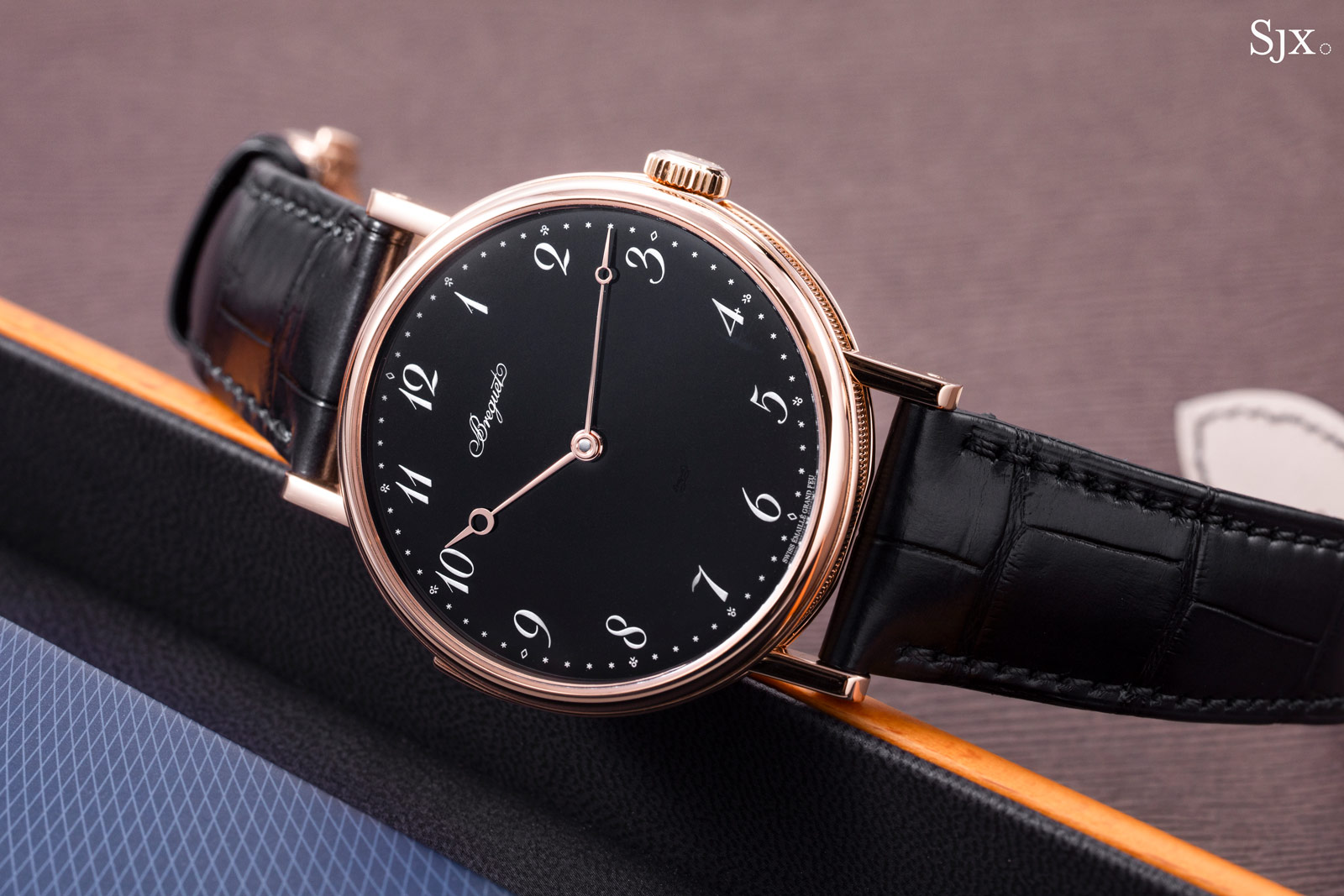
Key facts and price
Breguet Classique 7637 Répétition Minutes
Ref. 7637BR/2N/9ZU (rose gold)
Ref. 7637BB/2Y/9ZU (white gold)
Diameter: 42 mm
Height: 12.25 mm
Material: 18k rose or white gold
Crystal: Sapphire
Water resistance: Not available
Movement: Cal. 567.2
Functions: Hours, minutes and minute repeater
Winding: Hand-winding
Frequency: 18,000 beats per hour (2.5 Hz)
Power reserve: 40 hours
Strap: Alligator leather with folding clasp
Limited edition: No
Availability: At Breguet boutiques and retailers
Price: US$248,800 in rose gold; US$249,800 in white gold
For more, visit Breguet.com.

